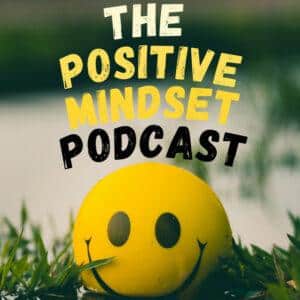Intro
In this episode of “The Daily Stoic” podcast, Ryan Holiday explores how the principles of Stoicism can be applied to real-life situations, including the steel industry. He shares insights from a talk he gave to US Steel executives on courage and resilience, drawing parallels between Stoic philosophy and the challenges faced by leaders in times of crisis.
Main Takeaways
Stoicism and the Steel Industry
- Stoicism can be applied to real people doing real stuff, including executives in the steel business.
- Stoics were familiar with the process of making steel and used metaphors of fire to describe it.
Navigating Crises with Stoic Philosophy
- The pandemic that hit Rome in 160 AD was a devastating global crisis that lasted for more than a decade.
- Stoic philosophy can provide guidance on how to navigate crises and maintain resilience.
- Stoic philosophy sees crises as opportunities to practice virtue and excellence.
- Marcus Aurelius faced numerous crises during his reign but saw them as opportunities to adapt and turn obstacles into fuel.
The Four Stoic Virtues
- The four Stoic virtues are courage, discipline, justice, and wisdom.
- Courage is the foundation of all virtues and is essential to facing fear in life.
- Practicing the Stoic virtues can help individuals navigate crises and become their best selves.
Courage and Overcoming Fear
- Fear is an ever-present thing that can make the hard things of life harder.
- The Stoics are good at processing their emotions so that they don’t make things worse in high-stakes situations.
- Courage is the ability to sublimate fear and tackle what needs to be done.
- Being intimidated or scared by uncertainty won’t help deal with it.
- Sometimes what we fear is not as bad as we think it is, and there are fewer of them when we are counting.
Discipline and Making a Positive Contribution
- The virtue of discipline or temperance or moderation is about controlling and directing powerful forces, like a charioteer with a powerful beast.
- Discipline and courage are related, and the middle ground between recklessness and cowardice is courage. It pertains to safety precautions in the workplace.
- Doing things rightly, however humbly, is noble (Sir Henry Royce).
- Obsession with getting better is up to you, not others (New England Patriots).
- Focus on what you can control, not what you can’t (Ryan Holiday).
- Make a positive contribution every day (Ryan Holiday).
- Trust the process and keep showing up (Ryan Holiday).
Justice and Wisdom
- Justice is about doing the right thing, right now, and for the right reasons, even if it’s not legally required.
- The virtue of justice is tied to ideas of honesty, transparency, and holding ourselves to high standards.
- Transparency and clarity are obligations of leadership and success.
- We should make decisions with the future in mind, like planting trees in whose shade we will never know.
- Short-term decisions can have long-term costs paid by future generations and the environment.
- The virtue of wisdom involves knowledge, learning, and being a lifelong student.
- Education is not something we graduate from; we must constantly learn and grow.
Summary
Applying Stoicism to Real-Life
Stoicism is not limited to philosophical discussions but can be applied to real people doing real stuff, including executives in the steel industry. Stoics were familiar with the process of making steel and used metaphors of fire to describe it, emphasizing the transformative power of challenges. Ryan Holiday gave a talk to US Steel executives on courage, highlighting how Stoic philosophy can provide guidance in navigating crises and maintaining resilience.
The Four Stoic Virtues
The four Stoic virtues—courage, discipline, justice, and wisdom—form the foundation of Stoic philosophy. Courage is considered the foundation of all virtues and is essential to facing fear in life. By practicing these virtues, individuals can navigate crises and become their best selves.
Courage and Overcoming Fear
Fear is an ever-present thing that can make the hard things of life even harder. Stoics excel at processing their emotions in high-stakes situations, sublimating fear to tackle what needs to be done. Being intimidated or scared by uncertainty won’t help deal with it, and often, what we fear is not as bad as we think. Cultivating courage allows individuals to confront their fears and overcome obstacles.
Discipline and Making a Positive Contribution
Discipline is a virtue that involves controlling and directing powerful forces, like a charioteer with a powerful beast. It is closely related to courage and finding the middle ground between recklessness and cowardice. Practicing discipline means doing things rightly, focusing on what you can control, and making a positive contribution every day. Trusting the process and consistently showing up are key to success.
Justice and Wisdom
Justice, as a Stoic virtue, goes beyond legal requirements and involves doing the right thing, right now, and for the right reasons. It encompasses honesty, transparency, and holding oneself to high standards. Making decisions with the future in mind and considering the long-term costs and consequences is an essential aspect of justice. Wisdom, on the other hand, emphasizes the importance of knowledge, learning, and being a lifelong student. Education is a continuous process, and books provide a means to learn from the experiences of others.
Conclusion
By applying Stoic principles such as courage, discipline, justice, and wisdom, individuals can navigate crises, overcome fear, make a positive contribution, and pursue excellence. The last couple of years have taught us the necessity of endurance, strength, commitment, and always moving forward. Stoicism provides a framework for facing challenges head-on, embracing opportunities for growth, and leaving a lasting legacy.
